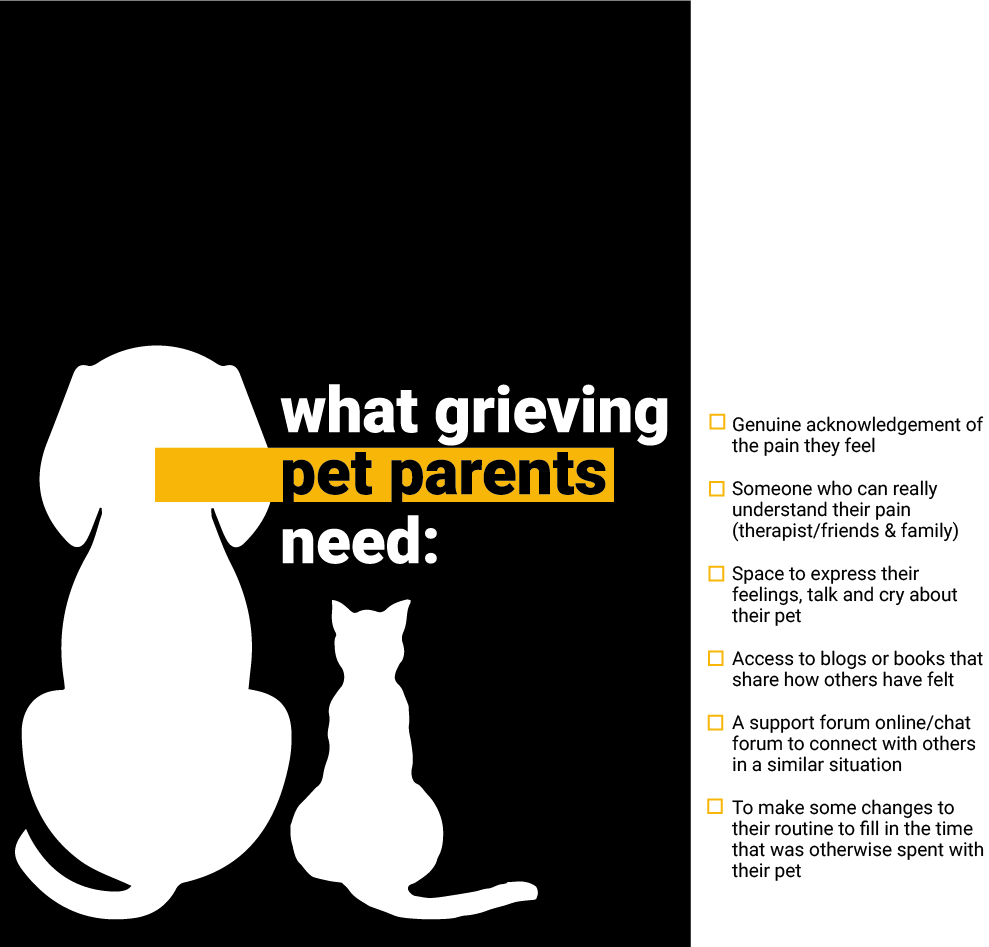Grief Counselling for Pet Parents
Grief means sadness, a sorrow for something that is lost or gone. We grieve to come to terms with loss. Bereavement is grief associated with someone’s death. Loss and death are part of the human experience. All cultures recognize that death is a part of our lives and people support each other in the bereavement process. There is a real acknowledgement of the finality of death and the loss it brings. There are rituals to help the bereaved mourn and cope with the death of someone close to them.
Ironically though the same empathy is often not extended to the loss of our animal companions. Our critters, whether it is our pets or the strays we care for, occupy a central part of our lives. The bond we share with them is deep and our co-dependency has a special quality. And yet, many cultures do not recognize this connection between them and us and how devastating their loss is for us to cope with. Despite being our best friends, family, furbaby or a dependable shoulder to cry on, our relationship with animals is trivialized or somehow considered less valuable than our relationship with other human beings. Often people are not able to acknowledge the loss that we go through and there are no rituals to help us mourn the loss of our beloved critter companions. The grief may be overlooked or even laughed at; often we may ourselves be hesitant to share our sorrow knowing it may be dismissed. Losing a furbaby may mean changes in the daily routine, like not being greeted at the door and coming home may never feel the same again. For many days after their passing, we may continue to hear the pattering of their feet or the sound of them lapping up water. We may even feel their warm breath. All of this indicates how intensely we miss them and how much they were a part of our every day life.
What grieving pet parents need is a genuine acknowledgement of the pain they feel. Therefore, they should reach out to someone who they feel can really understand their pain whether a therapist or friends and family. They should not minimize their feelings or think that their sadness and loss is not important. They must allow themselves to express their feelings, talk and cry about their pet and their sorrow. They can read some blogs or books that share how others have felt. They could also search for a support forum online or a chat forum on their smart phone to connect with others in a similar situation. Sometimes people find relief by putting their thoughts and feelings down in writing. Pet parents may need to make some changes to their routine to fill in the time that was otherwise spent with their pet. Some rituals in the pet's memory also offer solace. It is advised that they do not immediately adopt another pet but spend time processing the grief.
Grief counselling offers a therapeutic space for people to mourn the loss of their beloved furbaby. It starts out by recognizing that our society invisibilizes this particular grief that comes from losing a critter companion and hence creates a space within therapy to acknowledge and validate those feelings. The therapist creates a safe environment for pet parents to feel and express the grief with its full intensity. Different people have different ways of grieving and a therapist can help pet parents recognize what coping mechanisms work best for them in order to accept this painful loss.
Author bio: Shruti Chakravarty is a therapist with an independent practice based out of Bombay. She has 15 years experience in the field of mental health.
